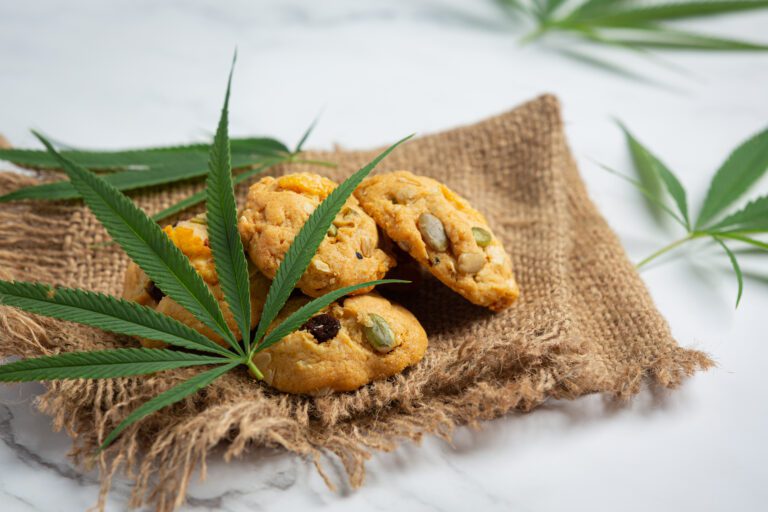Beyond Recreational Use: A Deeper Dive into Colorado’s Edible Marijuana Regulations

While Colorado is known for legalizing recreational marijuana, understanding the legalities surrounding edible cannabis products requires looking deeper. Public knowledge often focuses on possession limits, but crucial details regarding production, labeling, and consumption remain obscure. Most people think of ”gummies” when we say edibles. As we discuss, “gummies” are actually not permitted.
A Market with Nuances:
Colorado’s legal cannabis market is booming. According to a 2023 report by the Colorado Department of Revenue [1], retail marijuana sales surpassed $2 billion in 2022, with edibles contributing significantly. This substantial market necessitates a robust regulatory framework.
Key Regulations:
Licensing: As per the Code of Colorado Regulations [2], any entity involved in the production, sale, or testing of edibles requires a license from the state and relevant local authorities. Much of taxes for Edibles goes to government licensing and enforcement. Colorado has a special regulatory group known as the Marijuana Enforcement Division. MED enforces the regulations for edibles.
Dosage Limits: Recreational users are restricted to a maximum purchase and possession of 800mg THC per edible product. Each edible cannot contain more than 10mg and each package cannot exceed 100mg. The limits are there because the delayed response to edibles causes confusion. By knowing how much you have consumed you can avoid a bad response. Click here.
Packaging and Labeling: Edibles must adhere to strict labeling guidelines. The packaging needs to display the universal marijuana symbol, THC content per serving and total, and a clear warning against consumption by minors [3].
Unique Considerations:
Delayed Onset: Unlike smoking marijuana, edibles take longer to produce effects, which can lead to accidental overconsumption. This is why each package must be labeled with the amount of THC. Many people consume the edible and are fooled by the delayed onset. So they eat more. And More, and then end up in the hospital.
Child Safety: Edibles are often disguised as candies or baked goods, posing a significant risk of accidental ingestion by children. This is why there is no such thing as “gummies” any more. Edibles cannot look like Children’s candy such
as “gummies.” Colorado wants to make sure the package and design of edible do not attract children where they might accidently eat them thinking they are candy.
Consequences
Yes, you can get a DUI or more accurately a DUID from eating edibles. Driving while impaired means driving while impaired by any substance including edibles. The consequence for an edible DUI is the same as any other DUI. Moreover, for sentencing and edible DUI stacks and counts as an offense. If you had a prior DUI, a DUI for drugs is now your second offense. You can even get a DUID from riding your bike after eating edibles. Yes, that also counts as DUI.
Cannabidiol
CBD, or cannabidiol, is a naturally occurring compound found in cannabis plants. CDB can actually be a “gummies” because it does not contain THC, the active ingredient in Marijuana. CDB is not governed by the same rules as other edibles. You cannot get a DUI from CBD because it does not impair you or have any active psychoactive effects. It is one of over a hundred cannabinoids identified in cannabis and is non-psychoactive, meaning it does not produce the “high” associated with another well-known cannabinoid, THC (tetrahydrocannabinol). CBD is often extracted from hemp, a variety of cannabis with low THC levels.
Buyer beware as there is no agency that oversees CBD and therefore, the purity of the product may be in doubt. Some do contain trace amounts of THC and there can cause a positive drug test. CBD is relatively new to the marketplace and its effects have now been well studied.

Dive Deeper into Colorado’s Edible Marijuana Regulations
Thomas & Ahnell, LLC believes that Colorado’s evolving regulations on edible marijuana underscore a crucial balance between innovation and public safety. These measures, including clear labeling, potency limits, and child-resistant packaging, aim to mitigate risks such as accidental ingestion and delayed psychoactive effects, which can cause confusion and potential harm. By taking a proactive stance on consumer education and product transparency, Colorado is setting a standard for other states to follow, ensuring that the benefits of recreational cannabis use are realized while minimizing potential drawbacks. As the industry continues to grow, Thomas & Ahnell, LLC remains committed to compliance and the promotion of safe consumption practices.
Sources: [1] Colorado Department of Revenue: https://cdor.colorado.gov/data-and-reports/marijuana-data/marijuana-tax-reports
[2] Code of Colorado Regulations: https://cannabis.colorado.gov/legal-marijuana-use/laws-about-marijuana-use
[3] Colorado Department of Public Health and Environment: https://www.sos.state.co.us/CCR/GenerateRulePdf.do?ruleVersionId=7502&fileName=1CCR212-1
Eat and relax.
Do you have further questions or concerns? Call us or contact the attorneys at Thomas & Ahnell, LLC, and we will be happy to help.

